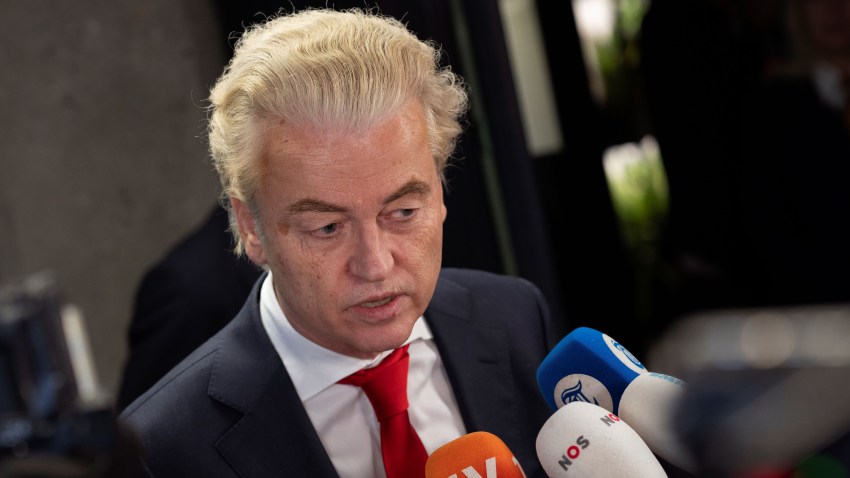As news trickled in of big gains for Geert Wilders’ far-right Party for Freedom, or PVV, in the Netherlands’ elections Nov. 22, shocked commentators engaged in frantic speculation about what its success meant for the future of European democracy. As the leader of what had suddenly become the largest party in the Dutch parliament, with 37 out of 150 seats and 24 percent of the vote, Wilders seemed as surprised by the result as anyone. Coalition negotiations with potential partners on the center-right will likely force Wilders to abandon his most radically xenophobic and Eurosceptic policies. Nevertheless, a government headed by a far-right prime minister would still represent a historical inflection point for one of the European Union’s founding member states.
The election results present the Dutch center-right—including outgoing Prime Minister Mark Rutte’s People’s Party for Freedom and Democracy, or VVD—with a stark choice between working with Wilders or striking a coalition deal with a center-left alliance that came in second place. Having experienced a harsh defeat, the VVD has stated that it will work with neither, though that could change in what promises to be a long government formation process. Among the PVV’s opponents, consternation has been followed by recriminations between those who believe that emphasizing migration as a campaign issue, as many candidates did, played into Wilders’ hands; and those who remain convinced that tougher measures against migrants could have prevented his success.
Yet amid all these rows, less attention has been paid to the broader question of why a party as radical and scandal-prone as the PVV managed to get to a position where 24 percent of Dutch voters were even willing to give it the benefit of the doubt. Its surge in support indicates how quickly circumstances can change when parties can no longer count on a high degree of voter loyalty. But without long-term trends that helped legitimize the PVV in the eyes of much of the Dutch electorate, such opportunities to capitalize on voter discontent would not have opened up in the first place. In addition to emulating far-right rhetoric over migration, center-right and even some liberal leaders also echoed the far-right’s posture toward supposedly “woke” issues involving gender and culture. In such an environment, much of what once defined the PVV as radical and dangerous had become mainstream political discourse.

